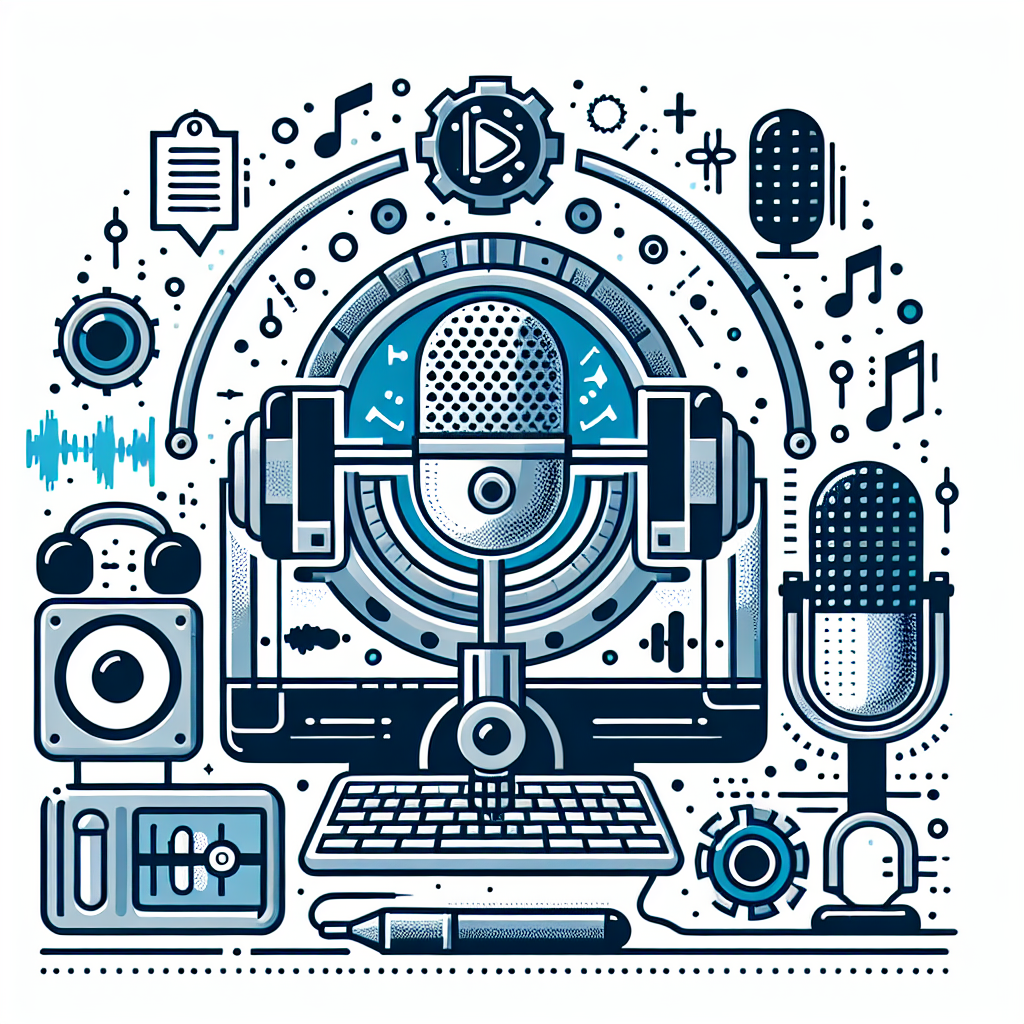Artificial Intelligence (AI) has been revolutionizing various industries, and podcast production is no exception. With the increasing popularity of podcasts, the demand for high-quality content has also surged. AI technology now plays a crucial role in streamlining the editing and distribution process, making it more efficient and cost-effective for podcast producers.
Editing is one of the most time-consuming tasks in podcast production. Traditionally, producers would have to manually edit out mistakes, background noise, and other imperfections in the audio. This process can be tedious and labor-intensive, especially for longer podcasts. However, AI-powered editing tools have made this task much easier and faster.
AI tools can automatically detect and remove background noise, normalize audio levels, and even edit out filler words and pauses. This not only saves time for producers but also ensures a higher quality audio output. Some AI editing tools can even suggest music and sound effects to enhance the overall listening experience.
Distribution is another key aspect of podcast production that has been streamlined by AI technology. With the help of AI-powered platforms, producers can now easily distribute their podcasts to multiple platforms with just a few clicks. These platforms can also provide valuable insights and analytics on listener demographics, engagement, and retention rates.
One of the key benefits of using AI in podcast production is its ability to personalize content for listeners. AI algorithms can analyze listener behavior and preferences to recommend relevant episodes and topics. This not only helps producers attract more listeners but also improves listener retention and engagement.
In addition to editing and distribution, AI technology is also being used to generate transcripts and captions for podcasts. This makes podcasts more accessible to a wider audience, including those with hearing impairments or language barriers. AI transcription tools can accurately transcribe audio to text in real-time, saving producers time and effort in manually transcribing episodes.
Overall, AI technology is transforming the podcast production process, making it more efficient, cost-effective, and accessible. As the technology continues to evolve, we can expect even more advancements in AI-powered tools and platforms for podcast producers.
FAQs:
Q: Can AI completely replace human editors in podcast production?
A: While AI technology has made editing tasks much easier and faster, human editors still play a crucial role in ensuring the quality and creativity of podcast content. AI tools can assist editors in tasks like noise reduction and audio normalization, but human editors are still needed for tasks that require a creative eye and personal touch.
Q: How can AI help with podcast distribution?
A: AI-powered platforms can help producers distribute their podcasts to multiple platforms with ease. These platforms can also provide valuable insights and analytics on listener demographics, engagement, and retention rates, helping producers optimize their content and reach a wider audience.
Q: How can AI personalize content for podcast listeners?
A: AI algorithms can analyze listener behavior and preferences to recommend relevant episodes and topics. This helps producers attract more listeners and improve listener retention and engagement. AI can also be used to generate personalized ads and promotions based on listener data.
Q: Are there any drawbacks to using AI in podcast production?
A: While AI technology offers many benefits in streamlining podcast production, there are some potential drawbacks to consider. AI tools may not always be 100% accurate in tasks like transcription and editing, and human oversight may still be required. Additionally, there are concerns about data privacy and security when using AI-powered platforms for podcast distribution.
In conclusion, AI technology is transforming the podcast production process, making it more efficient, cost-effective, and accessible. Producers can leverage AI tools for editing, distribution, and personalization to create high-quality content that attracts and engages listeners. As the technology continues to evolve, we can expect even more advancements in AI-powered tools and platforms for podcast production.

